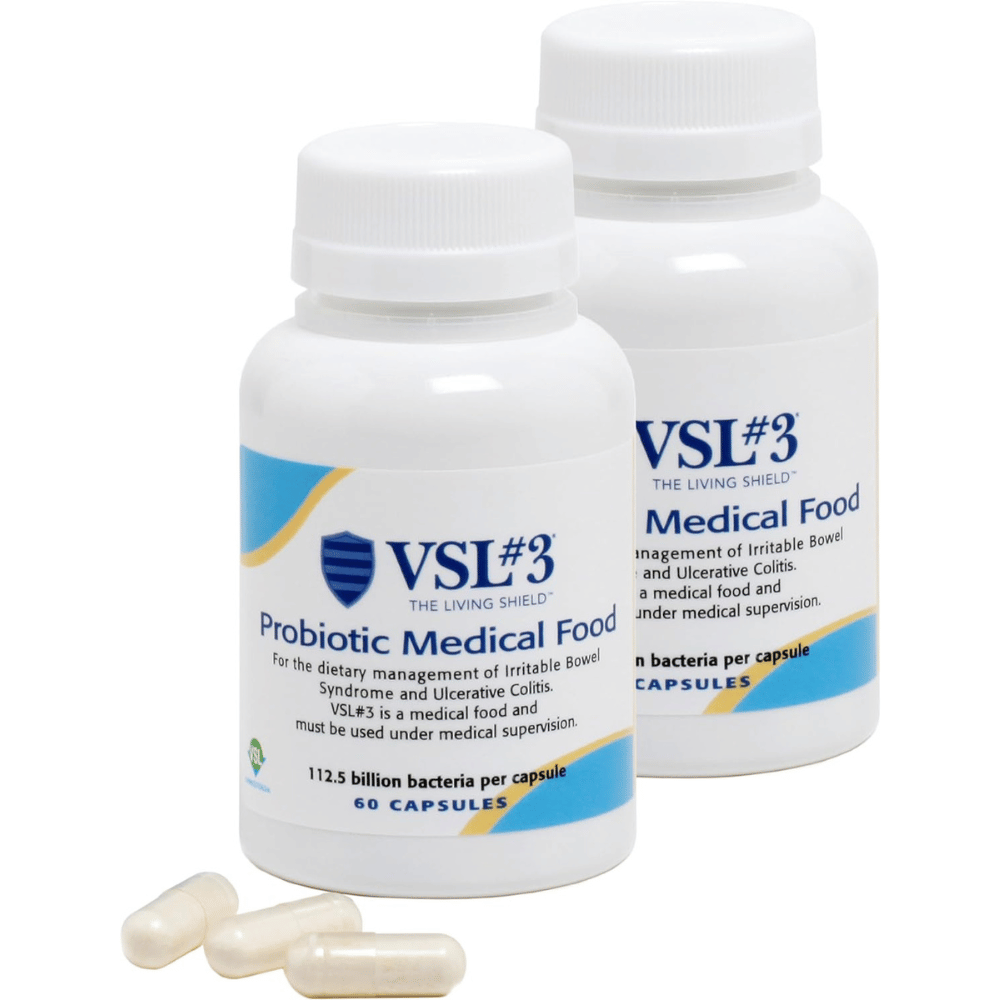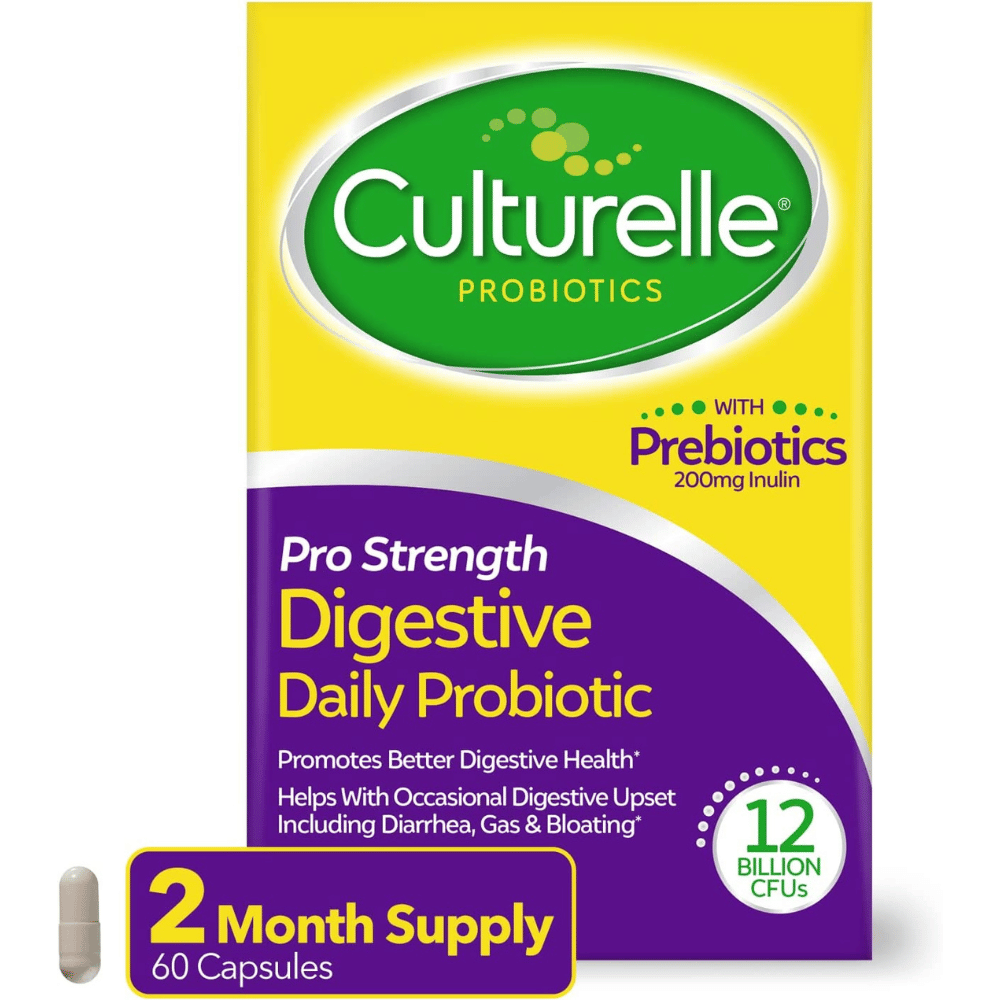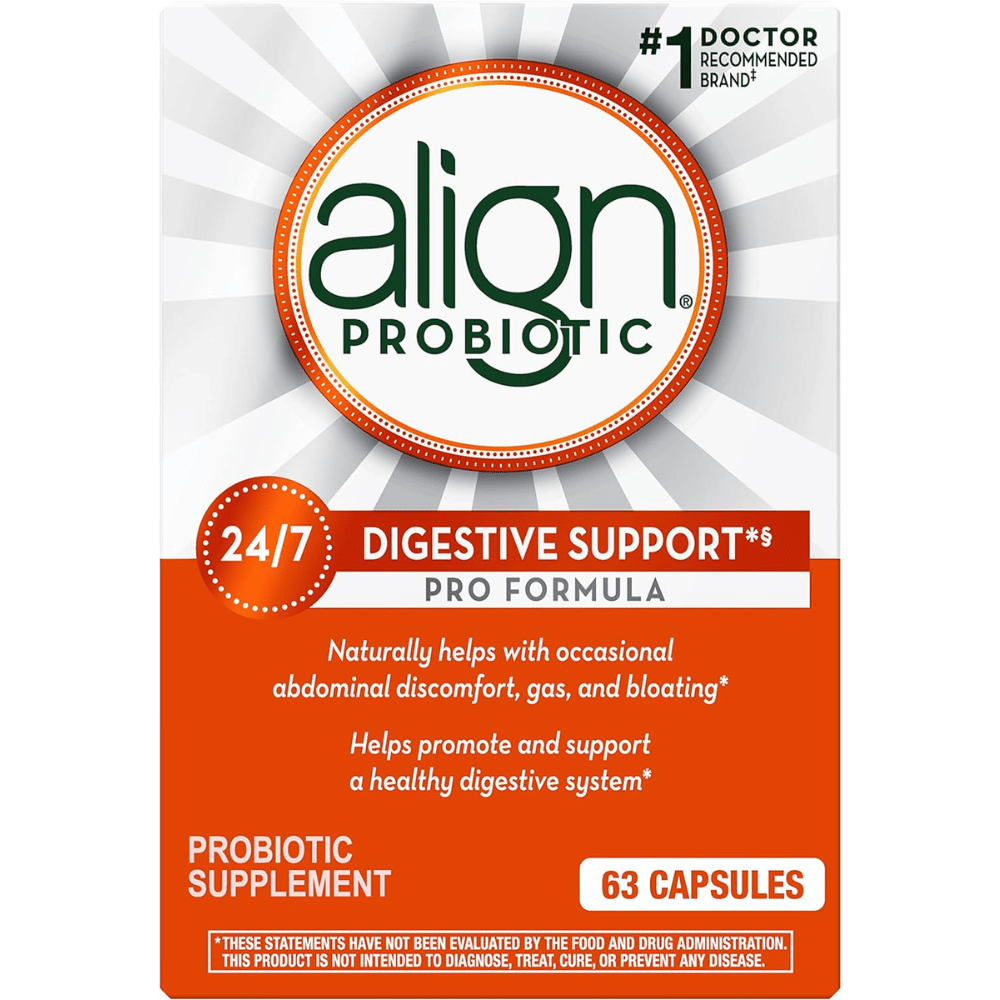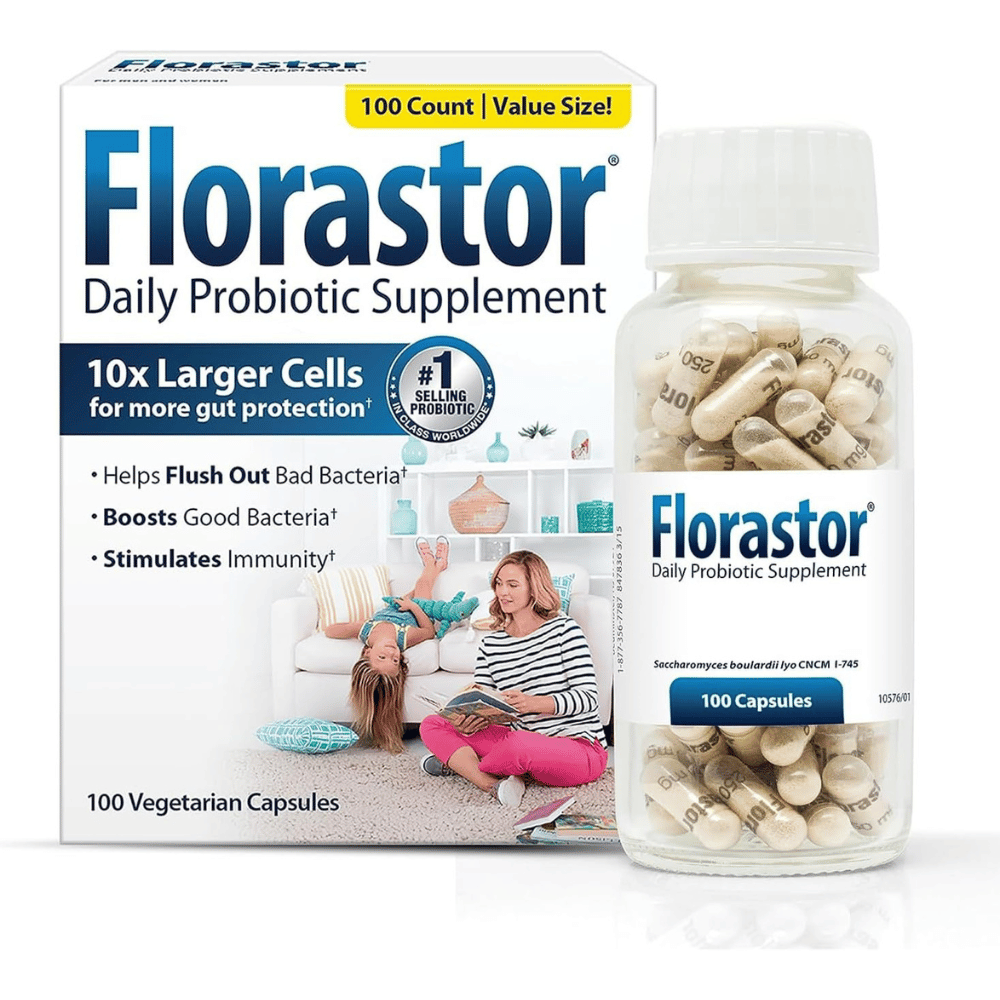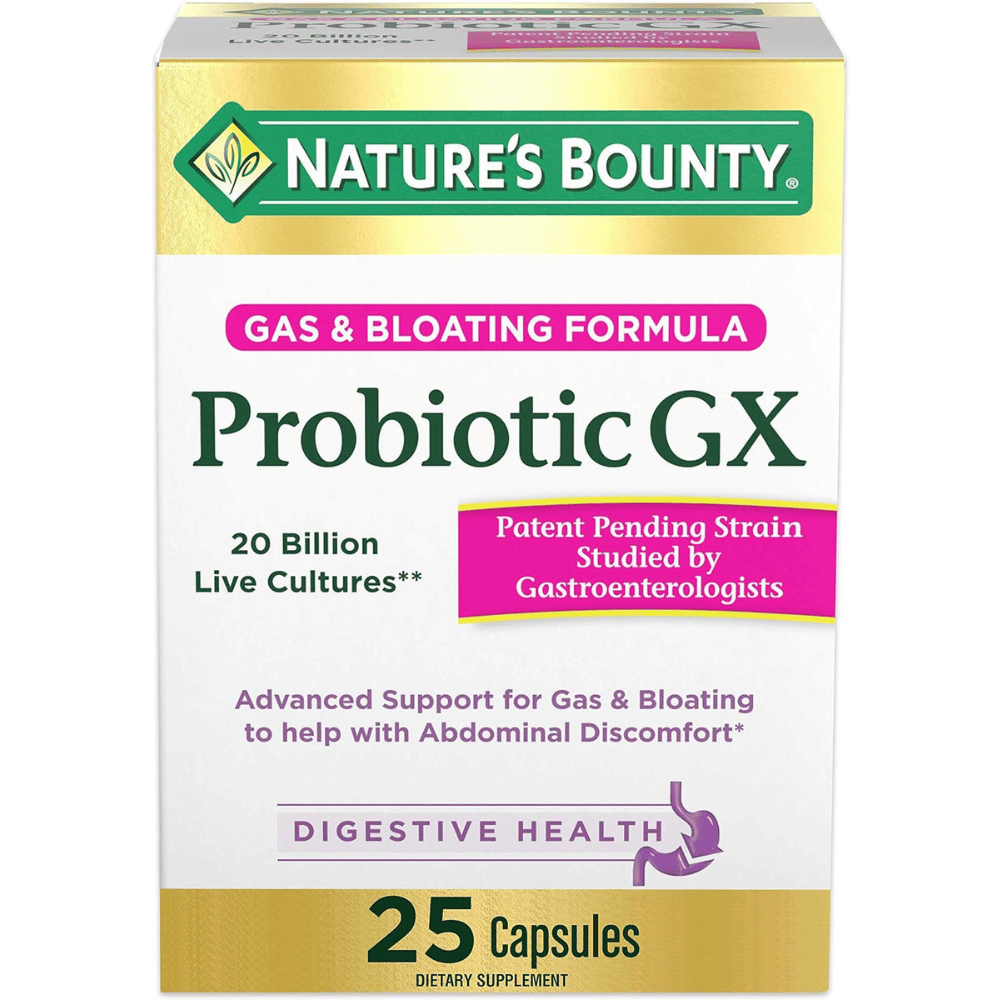Key Takeaways:
- Identifying Effective Probiotics: Certain probiotic strains like Lactobacillus acidophilus have shown potential in managing Crohn's disease symptoms.
- Clinical Evidence: Studies, including randomized controlled trials, highlight the role of probiotics in achieving and maintaining remission in Crohn's.
- Choosing the Right Supplement: Not all probiotics are the same; selecting a probiotic supplement specifically studied for inflammatory bowel disease (IBD) is crucial.
Crohn's, a chronic inflammatory bowel disease (IBD), poses significant challenges in daily management. While there is no cure, management strategies including the use of probiotics have shown promise in controlling symptoms and prolonging remission phases. This article delves into the best probiotics for Crohn's, backed by scientific research and clinical trials.
Understanding Crohn's Disease and Probiotics
Crohn's is characterized by inflammation of the gastrointestinal tract, which can lead to symptoms like abdominal pain, severe diarrhea, fatigue, weight loss, and malnutrition. The exact cause of Crohn's is still unknown, but it's believed to involve an immune system response to abnormal gut bacteria.
Probiotics are live microorganisms that, when administered in adequate amounts, confer a health benefit on the host. They are often called "good" or "helpful" bacteria because they help keep the gut healthy. For individuals with Crohn's, probiotics may help in rebalancing the gut microbiota.
The Role of Probiotics in Treating Crohn's Disease
Research suggests that probiotics can play a role in both in inducing remission and maintaining remission in Crohn's. A randomized controlled trial indicated that specific strains like lactobacillus acidophilus could reduce inflammatory markers and improve gut barrier function, which is often compromised in Crohn's patients.
Probiotic Strains and Their Efficacy
Not all probiotics are created equal, especially when it comes to managing IBD. The strain Lactobacillus acidophilus has been frequently studied for its benefits in inflammatory bowel disease patients. It is known to reduce gut inflammation and promote a healthy balance of gut bacteria.
Clinical Studies on Probiotics and Crohn's
Several clinical studies, including double-blind placebo-controlled trials, have investigated the efficacy of probiotics in IBD. These studies provide valuable insights into how different probiotic strains help in reducing symptoms and prolonging remission in Crohn's.
How to Choose the Best Probiotic
Choosing the best probiotic for Crohn's involves looking at the specific strains included, the dosage, and the form (such as capsules, powders, or liquids). It's important to select a probiotic supplement that has been clinically tested in inflammatory bowel disease patients to ensure its efficacy and safety.
Personalized Probiotic Plans for Crohn's Management
When considering the best of probiotic therapy for Crohn's, it's essential to recognize that every individual's microbiome is unique. This uniqueness calls for personalized probiotic plans tailored to each person's specific needs. For instance, a probiotic that works wonders for one person might not be as effective for another. This variability is due to differences in gut flora, genetic factors, and the overall health of the gastrointestinal tract. Personalized probiotic plans begin with a thorough assessment of the individual's current gut health, possibly involving tests that analyze gut bacteria composition.
Moreover, the effectiveness of personalized probiotics is often enhanced when combined with other lifestyle adjustments. These include dietary changes, stress management, and regular exercise. For those with Crohn's, integrating a personalized, probiotic treatment plan with these lifestyle modifications can lead to better management of symptoms and potentially bring about a clinical remission. Healthcare providers can offer guidance based on symptoms, the severity of the condition, and individual health goals, making the approach to treating Crohn's with probiotics more comprehensive and tailored to individual needs.
Probiotics in Conjunction with Diet for Crohn's Disease
Diet plays a crucial role in managing inflammatory bowel diseases, including Crohn's. The interaction between diet and probiotics is pivotal, as certain foods can enhance the growth and effectiveness of probiotics, while others might inhibit them. For instance, a diet high in fiber acts as a prebiotic, which promotes the growth of healthy bacteria in the gut. Incorporating such prebiotic-rich foods can amplify the benefits of probiotics, making them more effective in maintaining gut health and aiding in the management of Crohn's.
Conversely, it's also important to avoid foods that can aggravate the gut and counteract the benefits of probiotics. Foods high in sugar and fat can foster the growth of harmful bacteria and yeasts, which can exacerbate symptoms of Crohn's. By consulting with a dietitian or a healthcare provider, individuals can create a diet plan that not only avoids triggers but also complements their probiotic regimen. This holistic approach can help achieve a better balance in gut flora, reduce symptoms of irritable bowel syndrome, and support the journey towards clinical remission in Crohn's.
Probiotics and Ulcerative Colitis
While similar to Crohn's, ulcerative colitis is another form of IBD where probiotics have been studied. The same principles in selecting probiotic strains apply, with an emphasis on those that have shown benefits in clinical trials specifically for ulcerative colitis.
Probiotics vs. Other Treatments
It's crucial to compare the effectiveness of probiotics with other treatments for Crohn's, such as medications like anti-inflammatory drugs and immune system suppressors. While probiotics can help manage symptoms, they are generally used as a complementary treatment rather than a standalone therapy.
The Impact of Probiotics on Gut Health
Probiotics contribute to overall gut health by enhancing the mucosal barrier, competing with harmful pathogens, and modulating the immune response. This is particularly beneficial for Crohn's patients, who often suffer from compromised gut health.
Safety and Side Effects of Probiotics
Generally, probiotics are considered safe for most people. However, it's important to discuss with a healthcare provider before starting any new supplement, especially for individuals with compromised immune systems or those already on multiple medications.
Future Research on Probiotics and Crohn's
Ongoing research continues to explore the potential of probiotics in treating Crohn's more effectively. Future studies are focused on identifying new probiotic strains with even more targeted benefits for IBD sufferers.
How We Choose
Given the vast array of probiotic options on the market, determining the most suitable one for individual needs can be challenging. Our team has conducted extensive research on numerous products to identify the top five probiotics for Crohn’s Disease. This effort is aimed at making the selection process for consumers easier, enabling them to find the appropriate probiotic without having to guess or waste money on something that won't work.
We hope you find your next best buy from the list below! Each product was independently selected by our editors. BlakesBestBuys may collect a share of sales or other compensation from the links on this page if you decide to buy something (that's how we stay in business). Enjoy finding your next best buy!
The Best Probiotics For Crohn’s On The Market
VSL#3 Probiotic Medical Food
VSL#3 is a high-potency probiotic medical food that is clinically proven to help manage the gut flora imbalance associated with Crohn's. It contains 8 different strains of live lactic acid bacteria.
Exclusive Insights:
- Clinically Proven: VSL#3 has been part of numerous studies, including double-blind placebo-controlled trials, showing its efficacy in maintaining remission in IBD patients.
- High Bacterial Count: Each capsule contains 112.5 billion live bacteria, making it one of the most potent available.
- Multi-Strain Formula: The diversity of bacteria strains, including Lactobacillus acidophilus, helps in better gut flora management.
Customer Review: "I've had Crohn's for over a decade and nothing has helped manage my flare-ups like VSL#3. It's a game-changer for my digestive health!"
Culturelle Digestive Daily Probiotic
Culturelle is a well-known brand in the probiotic market, and its Digestive Health line is particularly effective for those with Crohn's due to its clinically proven strain, Lactobacillus GG.
Exclusive Insights:
- Clinically Backed: Lactobacillus GG is one of the most studied probiotic strains for its efficacy in treating and preventing antibiotic-associated diarrhea.
- Allergy-Friendly: Free from common allergens like dairy and gluten, making it suitable for sensitive systems.
- Single Strain Focus: Focuses on one highly effective strain, ensuring targeted action.
Customer Review: "Culturelle has been part of my daily routine for years. It helps keep my Crohn's in check and my gut happy!"
Align Probiotic Digestive Support
Align is widely recommended by gastroenterologists for its patented probiotic strain, Bifidobacterium 35624, which is particularly effective in managing symptoms of IBD.
Exclusive Insights:
- Patented Strain: Unique and clinically tested to ensure effectiveness in IBD management.
- Continuous Support: Designed for daily use to maintain digestive health balance.
- Gastroenterologist Recommended: Endorsed by experts for its efficacy in treating symptoms of Crohn's.
Customer Review: "Align keeps my gut in check better than anything else I've tried. It's a part of my daily routine now!"
Florastor Daily Probiotic Supplement
Florastor is unique as it contains Saccharomyces boulardii, a yeast-based probiotic that supports digestive health and prevents antibiotic-associated diarrhea.
Exclusive Insights:
- Yeast-Based: Different from bacterial-based probiotics, offering unique benefits.
- Supports Immune Health: Enhances the body's natural defenses, particularly beneficial for inflammatory bowel disease patients.
- Highly Resilient: Resistant to antibiotic interference, ensuring effectiveness.
Customer Review: "Florastor has been fantastic for my Crohn's. It's helped me maintain remission and keep my digestive health on track."
Nature's Bounty Probiotic GX
Nature's Bounty Probiotic GX contains patented probiotic strains that are clinically studied to support gastrointestinal health, making it an excellent choice for Crohn's management.
Exclusive Insights:
- Patented Strains: Specifically chosen for their impact on gastrointestinal health.
- Supports Regularity: Aids in maintaining regular bowel movements, which can be a challenge for Crohn's patients.
- Non-GMO: Committed to natural, GMO-free ingredients for health-conscious consumers.
Customer Review: "Nature's Bounty Probiotic GX has helped me keep my Crohn's under control. It's effective and gentle!"
Summary
Probiotics represent a promising complementary treatment for managing Crohn's. Specific strains probiotic bacteria like Lactobacillus acidophilus have been shown to help reduce symptoms and maintain remission. Choosing the right probiotic supplement involves selecting products that have been clinically tested in inflammatory bowel disease patients. While not a cure, probiotics can significantly improve the quality of life for those living with Crohn's by supporting gut health and reducing inflammation.
FAQ
Can probiotics cure Crohn's?
No, probiotics cannot cure Crohn's but can be an very effective treatment as part of a broader management strategy to reduce symptoms and maintain remission.
Are there any risks associated with taking probiotics for Crohn's?
Probiotics are generally safe, but it's always best to consult with a healthcare provider before starting any new supplement, especially for individuals with underlying health conditions.
How long does it take for probiotics to affect Crohn's?
The effects of probiotics can vary. Some people might notice improvements in a few weeks, while for others, it might take longer. Consistent and long-term probiotic use is generally recommended to see benefits.
What probiotics are good for inflammatory bowel disease?
EcN 1917 is one of the most common strains used as probiotics in IBD patients, and the specific characteristics like the unique structure of lipopolysaccharide and biofilms formation in different conditions make it survive in the gut.
What supplements should I avoid with Crohn's?
Check the labels on your supplements for lactose, artificial colors, sugar alcohols, or preservatives, all which can aggravate your IBD, especially when you are in a flare.
How do I heal my gut with Crohn's?
Eat smaller, frequent meals (5-6/day). Smaller volumes of food are easier to digest and process and this gives your body more time to absorb essential nutrients, while also helping to minimize gut symptoms after a meal. Modify the texture of foods to make them softer and easier to digest.
What is a super food for Crohn's?
Healthy fats that are especially beneficial are omega-3 fats, which are found in foods like fatty fish and shellfish, and antioxidant-rich fat sources like olive oil. 9 These fat sources may help reduce Crohn's-related inflammation and help protect against cellular damage.
Conclusion
Choosing the best probiotic for Crohn's disease involves considering the specific strains included, the clinical evidence supporting their use, and personal experiences from other users. The probiotics listed here offer a range of options that have been shown to help manage symptoms and improve the quality of life for those with Crohn's. Always consult with a healthcare provider before starting any new supplement, especially if you have a chronic health condition like Crohn's disease. Here's to better gut health and a happier, healthier you!


